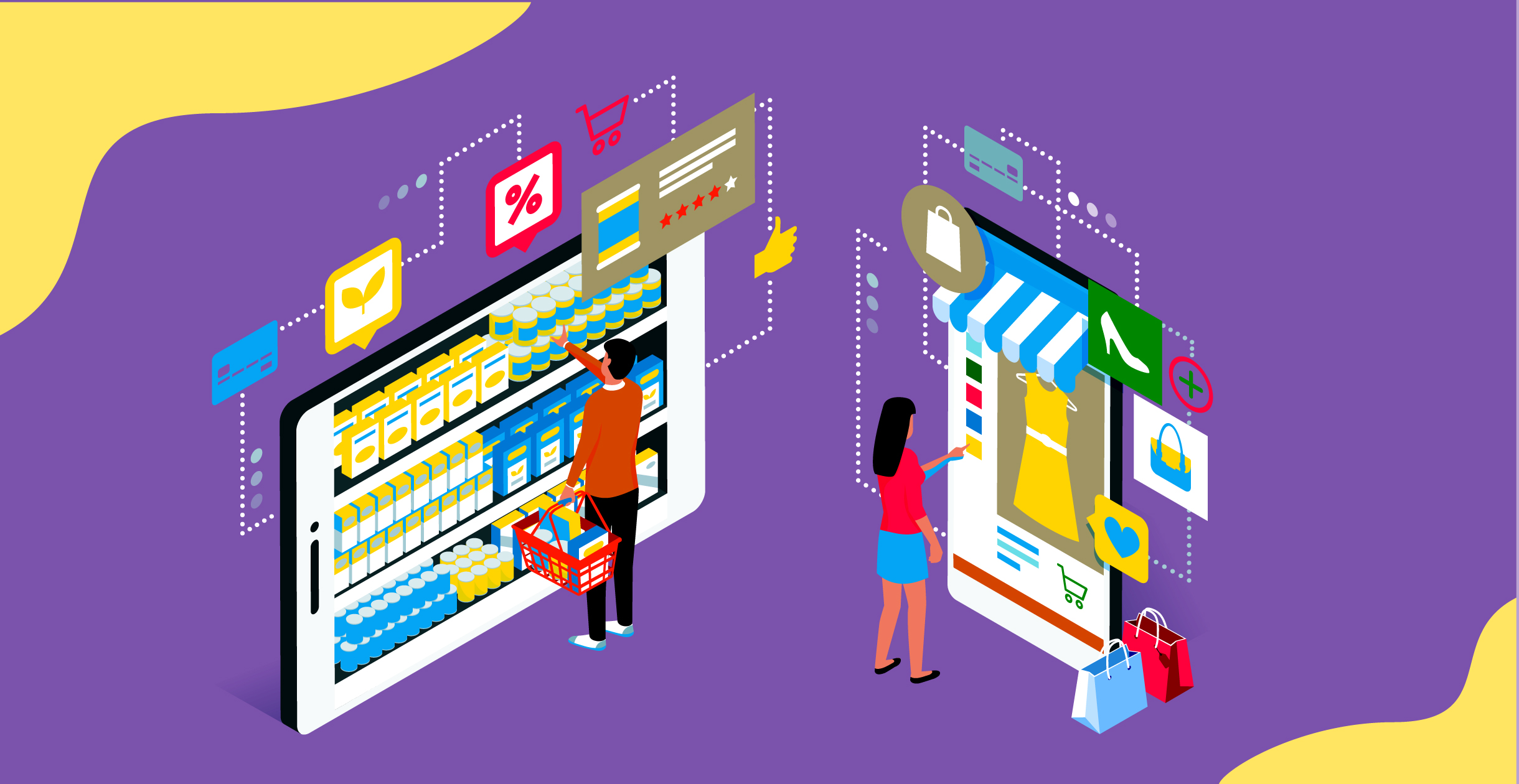
Personalization is the process of tailoring the shopping experience to each individual customer by using data and algorithms. This can include things like recommending products based on a customer’s purchase history, browsing behavior, and demographic information. Personalization can also include customizing the layout and content of a website or app to better meet the needs and preferences of individual customers. Personalization can help retailers increase sales, improve customer engagement, and build stronger customer relationships.
Data-driven personalization
Data-driven personalization is the process of using data to create personalized experiences for customers. It helps businesses understand their customers better and provide them with tailored solutions that meet their individual needs. By leveraging data-driven insights, companies can create more engaging experiences, boost customer loyalty and increase revenue.
Data-driven personalization has become an essential part of any successful marketing strategy. Companies are now using data to understand their customers’ behaviors, preferences, and interests in order to deliver highly personalized content that resonates with them. This allows businesses to build meaningful relationships with their customers by providing them with relevant product recommendations and targeted promotions that are tailored specifically for them.
Personalized customer experience
Personalized customer experience is becoming increasingly important for businesses. Companies are now leveraging AI technology to provide customers with a more personalized experience. With AI, companies can analyze customer data and use it to create tailored experiences that meet the individual needs of each customer. AI can also be used to predict customer behavior, allowing companies to make proactive decisions that will improve the customer experience. By using AI-driven solutions, businesses can ensure that their customers have a unique and satisfying experience with their brand.
Data-driven marketing
Data-driven marketing is the process of using data to inform decisions in order to maximize return on investment. It involves collecting, analyzing and interpreting data from various sources such as customer surveys, website analytics and social media platforms. By understanding customer behavior and preferences, marketers can create targeted campaigns that are more likely to drive conversions. Data-driven marketing enables businesses to make informed decisions about their strategies, enabling them to optimize their resources and increase their ROI.
Personalized digital experiences
Personalized digital experiences have become a must-have for businesses in the modern age. With the help of AI, companies can now create unique experiences tailored to their customers’ individual needs and preferences. By leveraging AI technology, businesses can provide customers with content that is more relevant to them and deliver a better overall experience.
This technology also allows companies to automate tasks such as customer segmentation and personalized recommendations. With AI, companies can quickly analyze large amounts of data and generate insights that help them create more targeted campaigns and experiences for their customers. By providing personalized digital experiences, businesses can increase customer satisfaction, loyalty, and ultimately drive sales growth.
Algorithm-based personalization
Algorithm-based personalization is an effective way to increase customer engagement and loyalty. By using algorithms, businesses can tailor their content and services according to the individual preferences of their customers. This way, they can provide a more personalized experience and create a stronger connection with their customers.
Algorithm-based personalization has many advantages. It helps businesses understand the needs of their customers better and deliver them the right product or service at the right time. It also helps them create targeted campaigns that are more likely to be successful. Furthermore, it allows them to automate certain processes, saving time and money in the long run.
Dynamic content personalization
Dynamic content personalization is the process of customizing content for individual users based on their preferences and interests. It allows companies to tailor their messaging and create experiences that are more meaningful and relevant to their customers.
Dynamic content personalization can be used in various ways, such as providing targeted product recommendations, displaying personalized offers, or creating tailored content for different customer segments. By leveraging machine learning algorithms and AI-based tools, companies can deliver more engaging experiences that are tailored to each user’s needs. This helps them build stronger relationships with their customers and drive higher conversions.
AI-powered content personalization
AI-powered content personalization is an emerging trend in the world of copywriting. It allows marketers to create content that is tailored to their target audience’s needs and interests. With AI-powered content personalization, marketers can create customized messages that are more likely to be effective in engaging their customers. AI-powered algorithms can analyze customer data and behavior patterns to make sure that the right message reaches the right people at the right time. This type of personalized content has been proven to be more successful in driving conversions and boosting customer engagement.
In today’s digital world, providing customers with a personalized ecommerce experience is essential to ensure customer satisfaction and loyalty. Personalization helps to build relationships with customers and make them feel valued. By leveraging AI-driven technologies such as machine learning, natural language processing and data analytics, businesses can provide their customers with an enhanced shopping experience that is tailored to their individual needs and preferences. This allows businesses to understand customer behavior better, provide recommendations based on past purchases, and offer personalized discounts or promotions that will keep customers coming back for more. With the help of AI-driven technologies, businesses can create a more engaging ecommerce experience that will lead to increased sales and customer loyalty.
Conclusion
In conclusion, personalization is a powerful tool for retailers that allows them to use data and algorithms to tailor the shopping experience to each individual customer. By analyzing customer data such as purchase history, browsing behavior, and demographic information, retailers can make personalized product recommendations, customize website design, and improve customer engagement. Personalization can ultimately help increase sales and build stronger customer relationships. Personalization gives the customer a sense of individuality, it makes them feel special and valued, and this will lead to customer retention and loyalty. With the help of personalization, retailers can enhance the customer experience and stay ahead of the competition.


